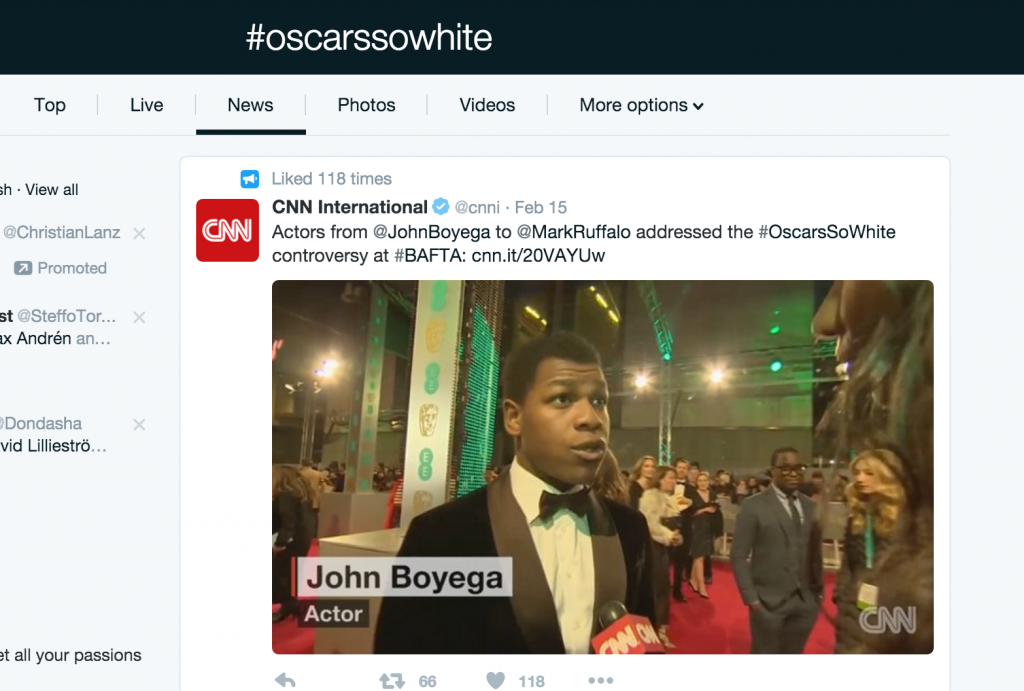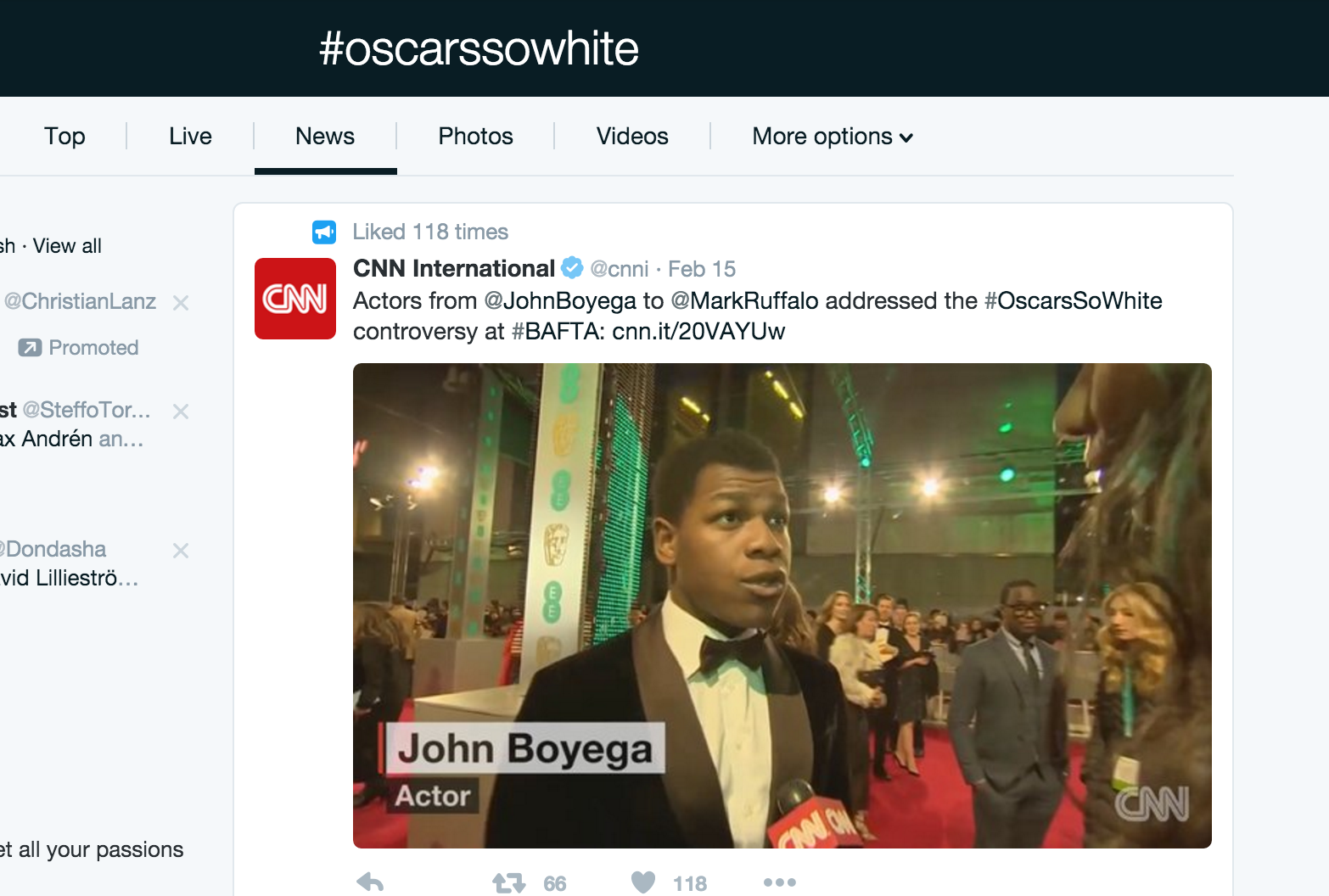By Melanie Spina
Co-Opinions-Editor
For this year’s Oscar nominations there are 20 contenders for acting awards, and every single one of the nominees is white. Not only that, all films that had a “black theme,” have been completely overlooked for the best picture category. This makes some of us wonder, is this really about having talent, or is this something minorities should, perhaps, take personally?

Well, many have already answered this question. As soon as the nominations came out, many took their frustrations to Twitter where the hashtag #OscarsSoWhite, from last year, was brought back to life.
I was never one to really question who was part of the Academy, or one to care for the Oscars, really. Don’t get me wrong, I’ve always watched them, but I never really paid attention to who got nominated or not. The Oscars have become more boring to me as every year goes by. However, this hashtag has definitely gotten my attention and led me to do some research on my own.
According to a study done in 2012 by the Los Angeles Times, Oscar voters are nearly 94-percent Caucasian and 77-percent male, meaning that blacks are close to 2-percent of the Academy and Latinos are even less than 2-percent. This study also showed that only 14 percent of Oscar voters are under 50-years-old. In other words, if the Academy itself isn’t diverse, how diverse can their top picks really be?
This is the second year in a row that all the Oscar nominees are white actors. Movies with black themes did receive recognition, but the recognition they received were for the white people who contributed to the movie, meaning that the black directors and actors were completely ignored.
In light of this, filmmaker Spike Lee, along with Will and Jada Pinkett Smith have announced that they will not be attending the ceremony, and honestly I can’t blame them. I understand that some movies may be considered better quality than others, but to completely ignore diversity for two years in a row in the nominations is pushing it.
Everybody has his or her own taste in film. I might like “The Notebook” whereas somebody else may like “The Wolf of Wall Street.” But when a group of individuals who share similar qualities, (white older males), are the ones choosing what movies are the top picks for the year, and all the movies that involved races that were not white are not even considered, it truly makes me wonder.
Senior broadcasting major, Jeniel Terrero, feels very strongly about this topic and he is quite proud that people are shining light on an issue that to him, is rarely brought up.

“We live in a generation where people are becoming aware of issues and are taking a stand on it,” Terrero said. “The Oscars is an issue that I’ve been following because as someone of color I believe that there is a lack of representation in Hollywood.”
Terrero feels that people of color very rarely get recognized, and if they do, it’s usually because they’re serving a stereotypical role. However, Terrero does not believe that the problem is with the Academy. “It’s really about the lack of substantial opportunities given to people of color,” he said.
Data from a study done at the Bunche Center at UCLA shows that in the year 2013, over 80 percent of the lead actors in a theatrical film were white whereas only 17 percent were black.
As college students, some may think this issue is not really something they should care about, but Terrero believes that students should because this doesn’t only happen in Hollywood. “This problem also reflects real life job opportunities, or lack of them that are offered to people of color,” he said. “As someone who wants to work in the media, I feel like I have to work twice as hard to make sure that my work speaks for me and lands me a job that isn’t based on my ethnic background.”
The hashtag #OscarsSoWhite is one that should be taken seriously by not only the Academy, but the entire movie industry. It’s 2016, and it’s time to start sharing roles and actually bring in diversity into Hollywood; diversity that is not only recognized when minorities are playing stereotypical roles.




Be First to Comment